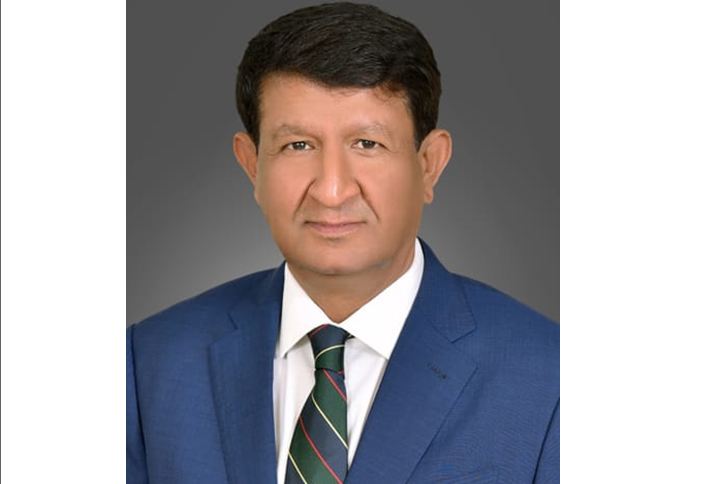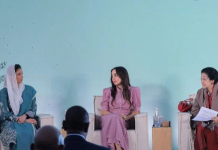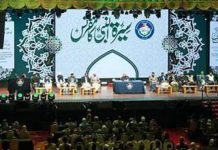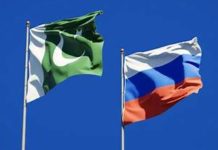The Taliban have won the war, but can they lead the peace?
“Kabul has changed significantly during the last 20 years, not least because of the demographic explosion that has created a vibrant urban and educated middle class that has tasted the fruits of freedom, development and democracy”
Ishtiaq Ahmad‘

The New Face
Meanwhile, the fate of the Afghans is once again in the hands of the Taliban. For the nations in the region and beyond, their return to power has also caused serious alarm. We are well aware of their conduct in power at home and in relations beyond the last time around. Can we expect the Taliban to act differently this time?
There are two opposite perspectives on the expected conduct of the Taliban once again in power, one motivated by political interests and another by humanitarian concerns. The first one is offered by some official circles and seconded by the so-called embedded journalists or scholars. It holds that the Taliban have learned their lessons from the long war and will not repeat the mistakes made during their previous stint in power.
The ‘change’ argument is grounded in the Taliban’s pronouncements from Kabul that they are not seeking to monopolise the government and are ready to share power with other Afghan parties and minority groups; that they have no objection to women at workplace or girls at schools as long as Islamic principles are being observed; and that they will not allow the use of Afghan soil by the Al-Qaeda or any other terrorist group for terrorist activities against neighbouring countries and the world.
However, the facts on the ground, as reported by the UN High Commissioner for Human Rights, the Human Rights Watch and major media outlets, confirm the veracity of the alternative perspective on the expected conduct of the Taliban while in government again. It is that the Taliban have already committed war crimes and ruled withfear in the areas under their occupation:executing captured soldiers, persecuting unarmed civilians, shutting down schools for girls, restricting women’s movementin public, levying heavy taxes, so on and so forth.
Kabul has changed significantly during the last 20 years, not least because of the demographic explosion that has created a vibrant urban and educated middle class that has tasted the fruits of freedom, development and democracy. Therefore, for now, the Taliban have been careful in not enforcing their strict Shariah edicts on the public at large. However, there have been isolated incidents of repression by Taliban gunmen. The private media, including major TV outlets, have chosen to adapt to the new normal under the Taliban through self-censorship.
The Taliban havealso reportedly not kept their end of the bargain in the February 2020 agreement with America: that they will not allow the use of Afghan soil by Al Qaeda or any terrorist group or individual against the security of the United States and its allies.Since then, the UN Sanctions Monitoring Committee has twice reported to the Security Council about the Taliban’s persisting nexus with the Al Qaeda and its affiliate, the Al Qaeda in the Indian Subcontinent.
As the recent bombing at the Kabul airport by Islamic State Khurasan Province (ISKP), which killed 13 US soldiers and several dozen Afghan civilians, suggests, the Taliban do have an ideological transnational Islamic rival to defeat in Afghanistan. No US solider had died in Afghanistan since the US-Taliban accord in February 2020. Hence, this was indeed a departing salvo to the US military in the last days of its evacuation from Kabul. It is also most likely that the US was able to kill twoISKP leaders, including the alleged planner and facilitator, with the help of intelligence provided by the Taliban. Hence, at least in the case of ISKP, we can expect the Taliban to cooperate with the outside world to eliminate this relic of the ISIS.
Currently, the Taliban are in the process of forming a government, which they claim will be inclusive and based on power sharing. They have already stated clearly that the new political setup will not be democratic, as there will be no elections. It will be run by a leadership council, a jirga of sort, which the Taliban already have as a governing body of their movement.
In their agreement with the US, the Taliban had made no commitments on human rights, knowing very well the US was simply seeking face saving through this accord. Their pronouncements on preserving women rights or media freedom, though in accord with Shariah law and Afghan values, will be fully tested only once the government they lead comes into practice on the ground.
If my afore-cited recollection of the time spent with the Taliban leaders in their infancy, even if most of them are dead now, suggests anything, it is thatthe Taliban are Taliban, old or new doesn’t matter. How can Mullah Haibutullah Akhundzada, their current Emir-ul-Momineen, be better than earlier two Emirs? Ultimately, the Taliban remain a militant movement, rooted in religious bigotry, seeking to impose its brand of Islam on the Afghan people and desiring that the fellow Muslim nations shall replicate the same.
The legitimacy of the Afghan Taliban movement lies in its ideological purity, which the Taliban leaders will try to uphold at all cost. Otherwise, they will lose their key public support base. If left alone, the Taliban will do exactly what they did to the people before on the basis of religion, gender and ethnicity. If left unchecked, sooner or later, they will play host to Al Qaeda or other terrorist groups, once again jeopardising regional peace and international security. In any case, their wholesome victory in Afghanistan already seems to serve a glimmer of light for the world of extremism and political Islam.
The Current Challenge
Therefore, the current dilemma facing the outside world in dealing with the new rulers of Afghanistan is extremely acute. The key challenge will be to ensure that the Taliban strictly comply with their commitments on women and minority rights, freedom of speech and relations with the world. The Taliban-led regime will be in dire need of international financial support, which must also be made conditional on its internal conduct and external behavior.
The danger is that if the Taliban-led regime was ostracised by the outside world, it will most likely revert to the same puritanical venture as before, with deadly consequences for the Afghan people and the nations beyond. The US has frozen around $10 billion Afghan foreign exchange reserves, and it still has the final say in decision of the IMF, World Bank and other international financial and donor organizations.
Thus, the Taliban have inherited a country that is not to only difficult to government due to pent up expectations of the youthful urban population in urban spaces like Kabul, but is currently short of cash even to meet basic needs of the people. Thus, the fear is that, after having been defeated and humiliated in Afghanistan, the US may try take revenge against the Taliban by squeezing the economic capacity of Afghanistan, by denying what is its due. The question is, will the US allies in Europe again bandwagon with Washington to worsen the economic challenge for the Taliban-led government? All these countries must be aggrieved for also have been humiliated by band wagoning with the US in the 20-year fruitless war as members of NATO.
So, ultimately, the international engagement, especially of the countries in the region, with the Taliban-led Afghanistan remains the only viable option. China and Russia abstained in the UN Security Council, as it resolved on August 30 to hold the Taliban responsible if they dithered on their public commitment to respect human rights and allow the safe passage of the remaining foreigners and Afghans desiring to leave the country.
Now the mantle is on China, Russia and European powers to prevent the economic collapse of the post-American socio-political order in the war-ravaged nation. They must prevail in the UN-led global decision making to prevent the implosion of the Afghan state under the Taliban, which will surely taking us back to the 1990s and lead to the repeat of the deadly events that harmed the Afghans, the nations of the region and ultimately hit the symbolic pillars of US financial and military power: the destruction of World Trade Centre in New York and the damage to the Pentagon building in Washington, DC, on 9/11.
In the end, the 20-year war ended by damaging the leftover of American credibility as a global power as well as its moral standing in the world, if we also add the images of the Afghans clinging desperately to the sides of the US military planes and meeting their unfortunate fate after falling from the sky; or if we take into account the appeals on social media being made by the Afghan enablers left behind by the US and British armies as they cut and ran from Kabul to complete the withdrawal a minute before midnight of August 30.
The departing forces of the US have also left an additional expression of their recklessness behind, as they destroyed not just the military and civilian planes at the Kabul airport but also smashed its control tower and everything else that is need to regulate the air traffic. Of course, the Qatri and Turkish engineers may overtime be able to operationalize the airport, but this sort of behaviour cannot be expected from a country that claims to champion democracy and human rights the world over.
The Future Ahead
We can only hope that the Biden administration will build upon its correct decision to take the US out of an unwinnable war, by prevailing upon the “special interests” inside the US – the war machinery built upon the deep nexus between the Pentagon and CIA, and the defence contractors, the so-called military-industrial complex – not to punish the government of Afghanistan led by the force that defeated the US war machinery and exposed the “Special interests” in the manner never seen in recent history.
Through the international financial institutions and human rights organisations, the outside world can keep a constant tab on the Taliban way of governance, tightening the screws each time Taliban leaders waver from meeting global expectations. This is the point that China, Russia, Afghanistan’s other regional neighbours and the European powers can make in the ensuing international debate on Afghanistan’s future so as to ensure a working relationship and a healthy engagement with the upcoming Taliban-led political order in Afghanistan.
It is also important to underline another point about the regionalization of post-America Afghanistan: The country lies at the confluence of Central,West and South Asia. International efforts for the economic integration of these adjoining regions in the past couple of decades has been hostage to persisting Afghan insecurity. Therefore, one way of taming the Taliban-led regime is to revive these efforts, especially the gas pipeline agreement between Turkmenistan, Afghanistan, Pakistan and India (TAPI), which has been pending implementation since 2010.
The TAPI project offers a win-win solution by seeking to link the energy-rich Central Asia with the energy-starved South Asia, with Afghanistan providing the most crucial corridor. Ultimately, such regional integration projects bind the participating nations in a chain of interlocking economic interests, thereby ensuring that their regimes stay focused on economic progress at home and strive for peace in the region. The Taliban-led Afghanistan should not be an exception.
The author can be reached at [email protected]Twitter: @ahmadishtiaq

















